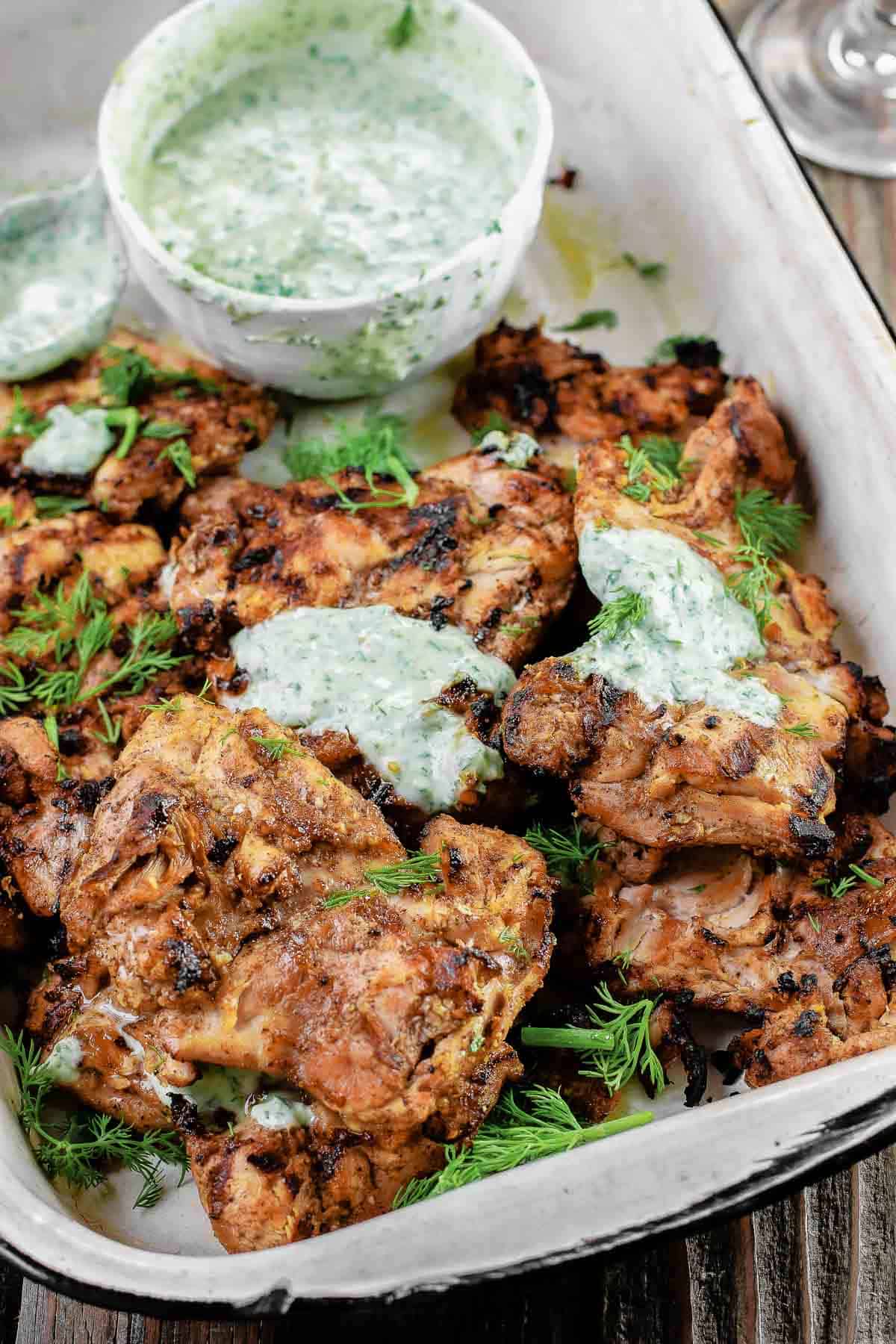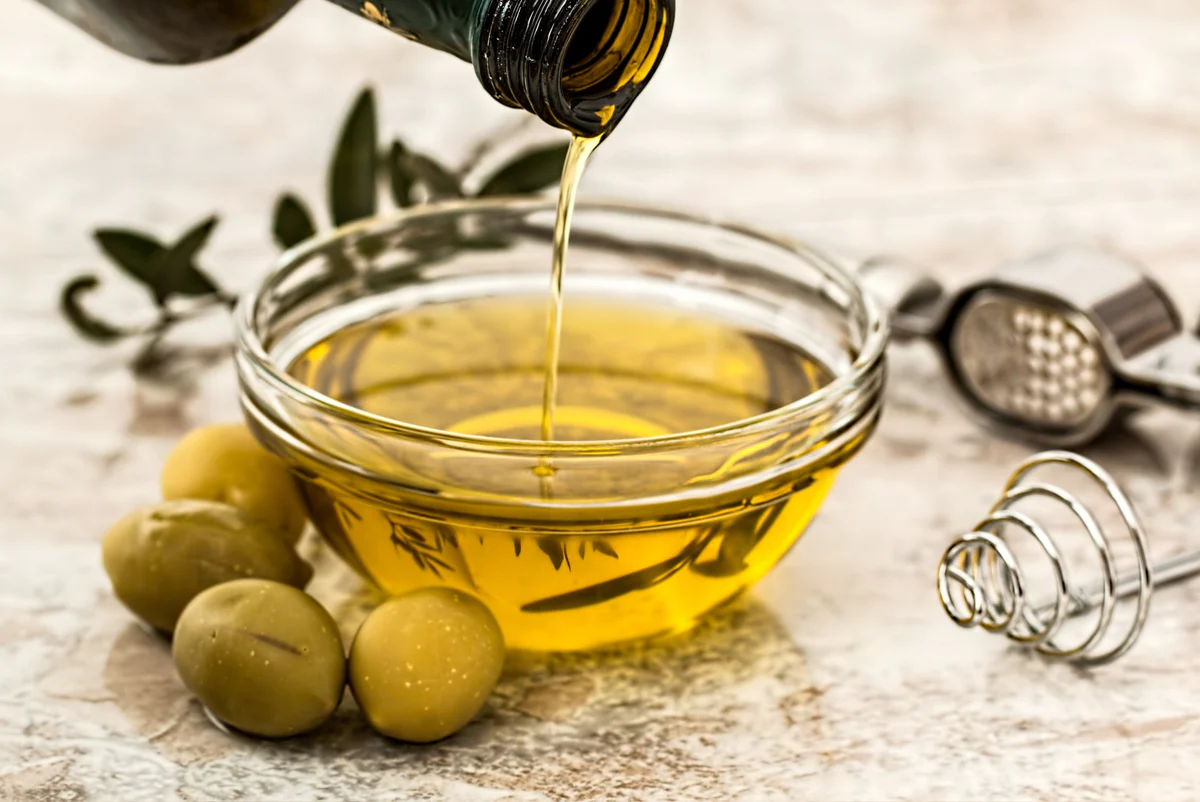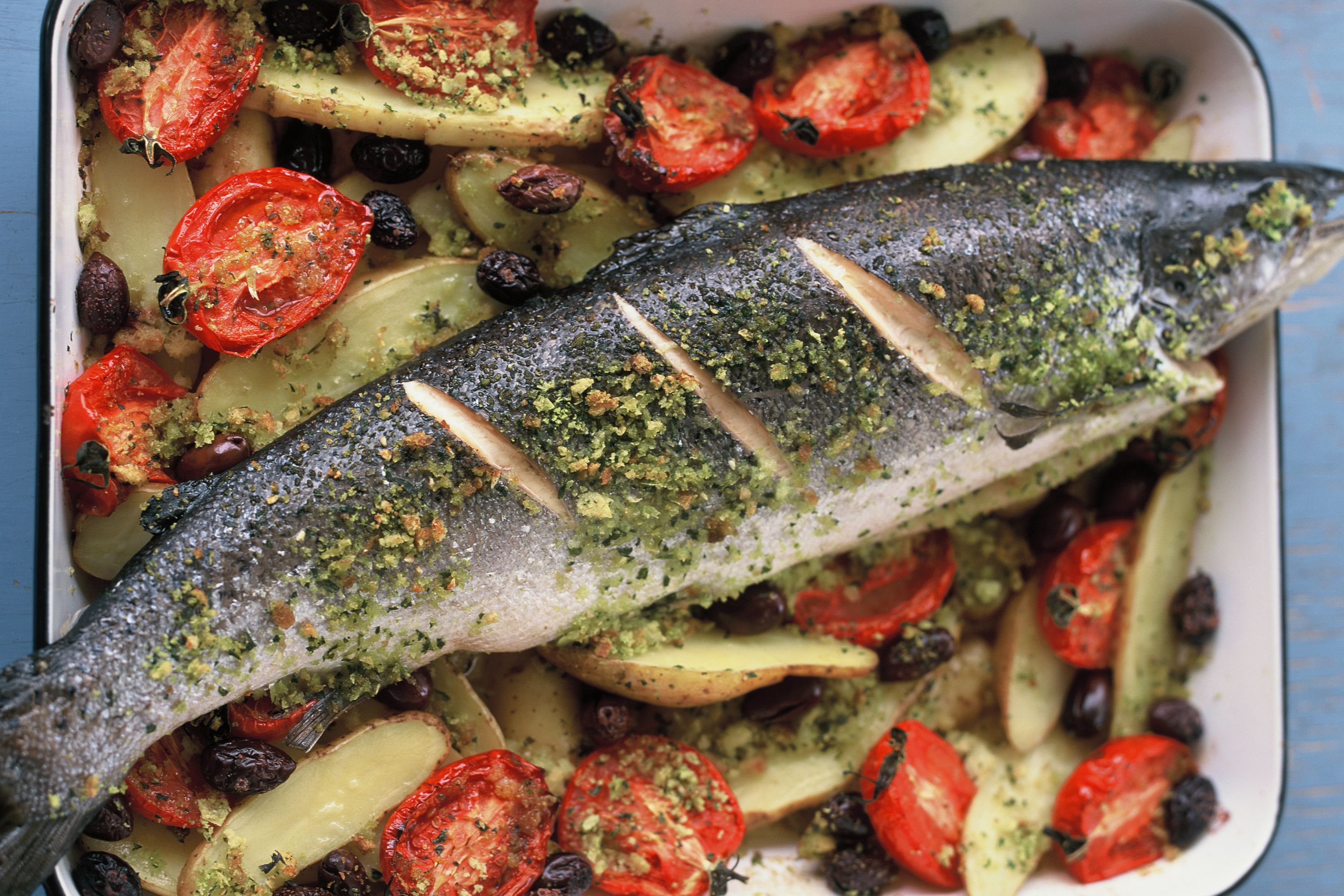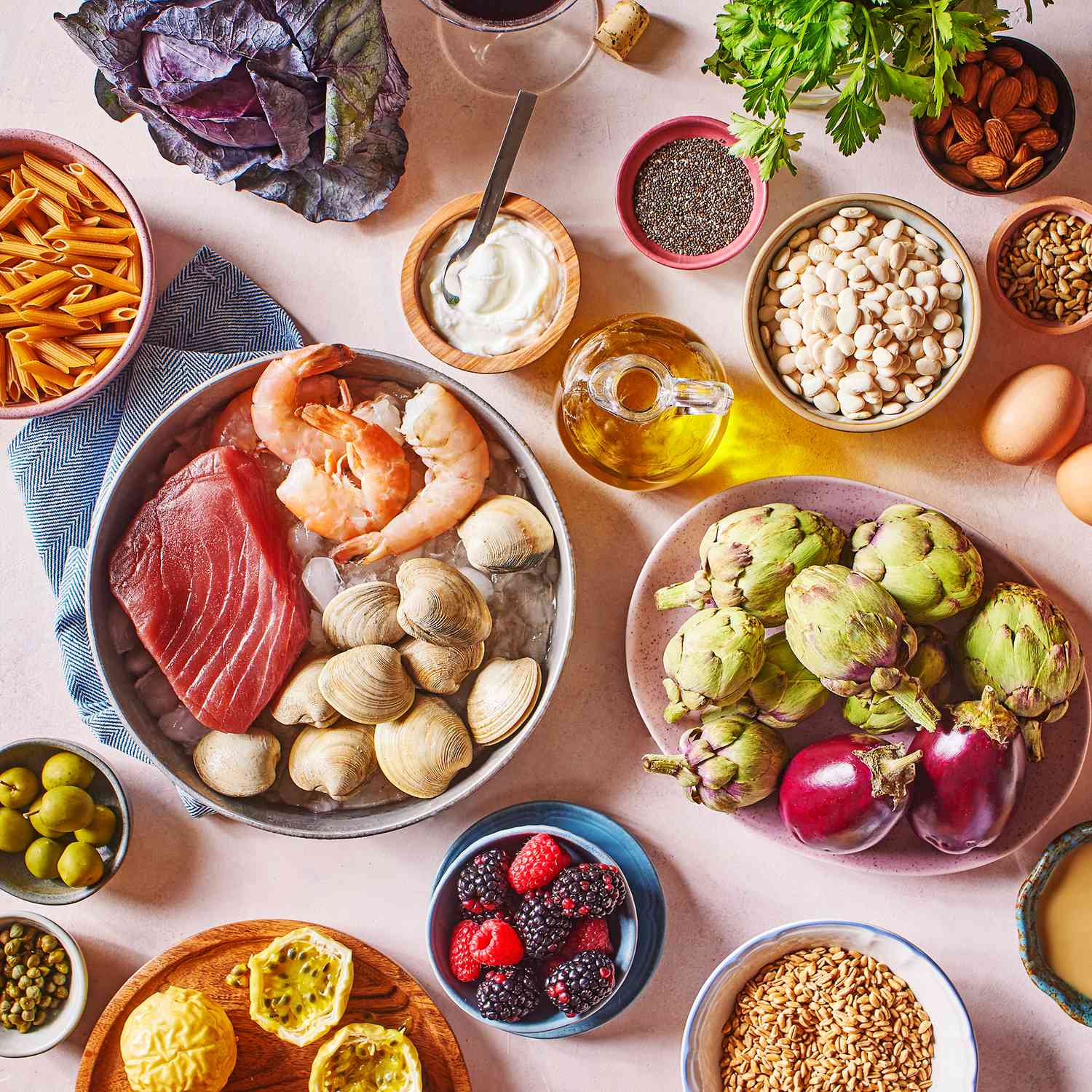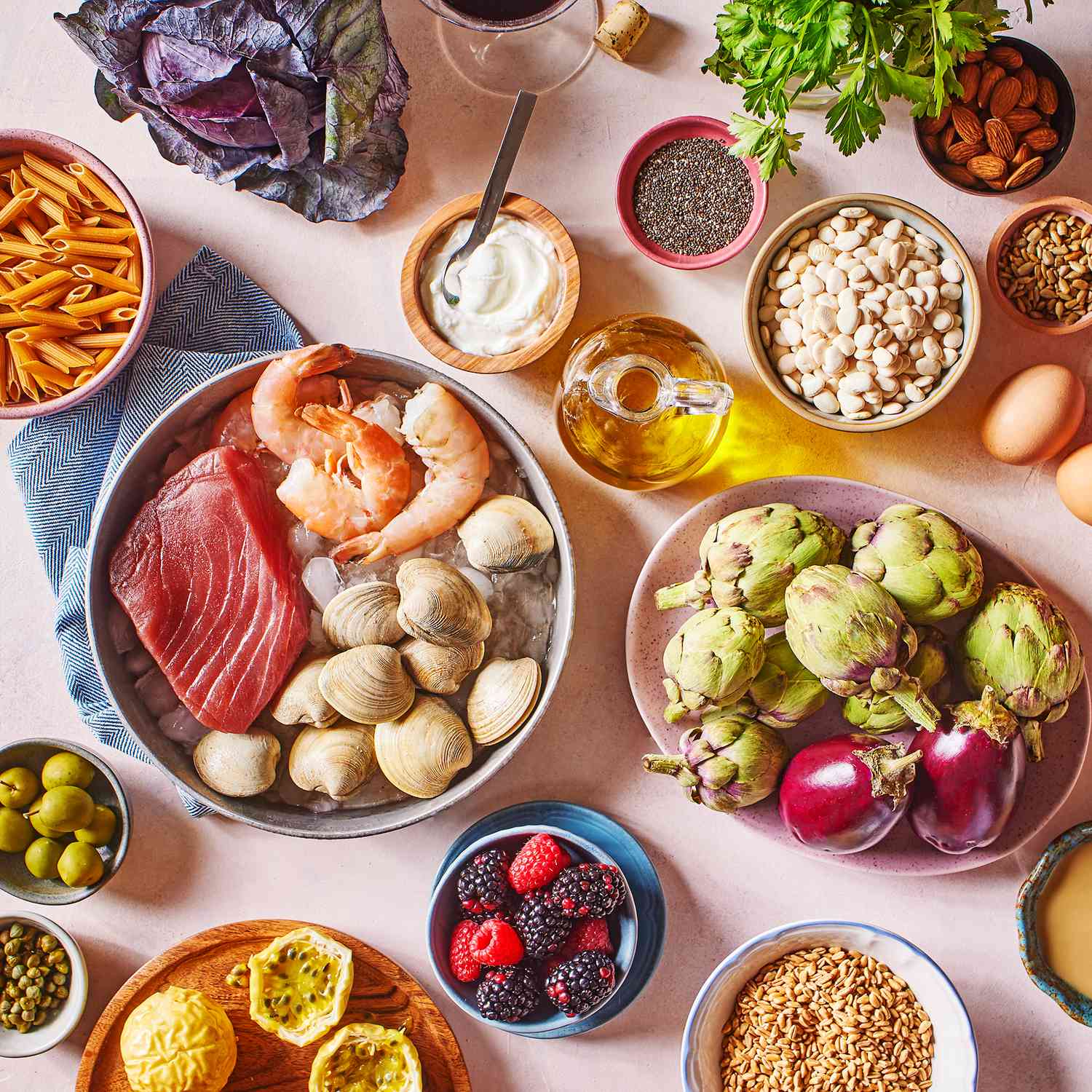The Traditional Mediterranean Diet - A Culinary Journey To Health
Explore the rich tapestry of the traditional mediterranean diet and its profound impact on holistic well-being. From olive oil's golden embrace to the diverse array of nutrient-rich foods, uncover the culinary symphony that nourishes body and soul. Delve into regional adaptations, mindful indulgence, and the health benefits that make this lifestyle more than a diet—it's a celebration of life. Join us on a journey through the Mediterranean, where flavors, culture, and well-being converge in a harmonious feast. Discover the essence of the Mediterranean diet at its best.
Author:Suleman ShahReviewer:Han JuNov 19, 2023887 Shares110.9K Views
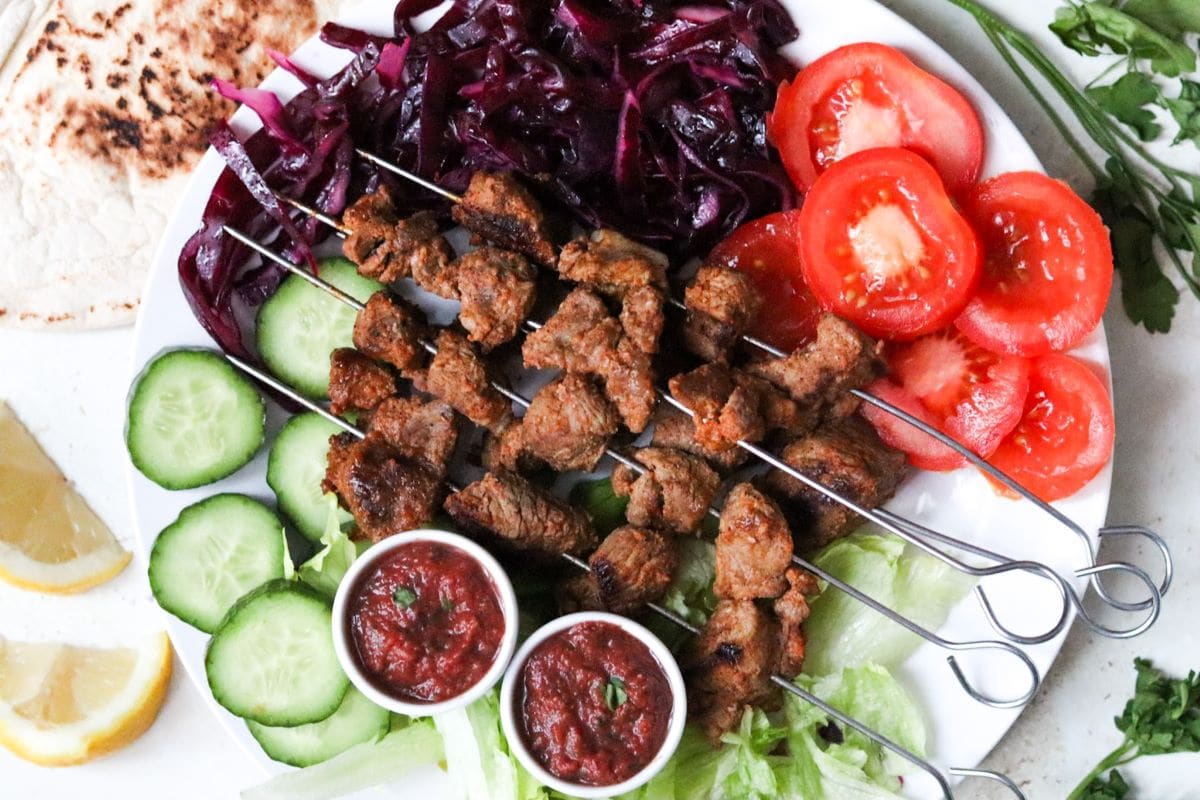
The traditional Mediterranean diethas long been celebrated for its positive impact on healthand well-being. Among the Mediterranean countries, Greece stands out for its rich culinary heritage, featuring a diet that emphasizes olive oil, fresh fruits, vegetables, and fish. In this article, we will delve into the health benefits of the traditional Mediterranean diet, exploring its nutritional components and their effects on overall health.
The Traditional Mediterranean Diet
The Traditional Mediterranean Diet(TMD) stands as a testament to the harmonious relationship between culture, geography, and health. Rooted in the dietary traditions of the Mediterranean region, including the captivating culinary landscape of Greece, this dietary pattern has garnered international acclaim for its holistic approach to nourishment.
Culinary Symphony Of The Mediterranean
Spanning countries along the sun-kissed shores of the Mediterranean Sea, the TMD is a culinary symphony that embraces the bounties of the land and sea. It reflects the unique tapestry of flavors and textures that have evolved over centuries, influenced by the vibrant cultures that call this region home.
Key Components Of The TMD
At its core, the TMD is distinguished by its emphasis on a diverse array of nutrient-rich foods:
- Fruits and Vegetables:A kaleidoscope of colors graces the Mediterranean plate with the vibrant hues of fresh fruits and vegetables. These are not mere accompaniments but star players, loaded with essential vitamins, minerals, and antioxidants.
- Whole Grains:The diet champions the consumption of unprocessed, whole grains, incorporating staples like bulgur, farro, and barley. These grains, rich in fiber and nutrients, contribute to sustained energy and digestive well-being.
- Legumes:The Mediterranean table features an array of legumes such as chickpeas, lentils, and fava beans. These plant-based powerhouses provide a protein-packed alternative and contribute to the diet's overall balance.
- Nuts and Seeds:A sprinkle of nuts and seeds adds a delightful crunch to Mediterranean dishes, delivering a dose of healthy fats, protein, and essential minerals.
- Olive Oil:The crown jewel of Mediterranean cuisine, olive oilis more than a cooking ingredient; it's a cultural emblem. Its golden richness not only enhances flavors but also bestows a myriad of health benefits.
Olive Oil - Liquid Gold Of The Mediterranean
Olive oil is undeniably the cornerstone of the TMD. Whether drizzled over salads, used in cooking, or enjoyed as a dipping sauce, its rich, monounsaturated fats and potent antioxidants contribute to cardiovascular health, inflammationreduction, and a radiant complexion.
Diversity In The Mediterranean Diet - Adapting Across Regions
The Mediterranean diet, renowned for its health-promoting qualities, encapsulates a rich tapestry of foods and culinary traditions that reflect the diverse landscapes and cultures of the regions it encompasses. From the sun-drenched shores of Greece to the olive groves of Italy, the diet's core principles endure, yet its manifestationtakes on a uniquely local flavor.
Consistent Principles, Regional Variations
At its heart, the Mediterranean diet advocates for a harmonious balance of whole foods, with an emphasis on:
- Fruits and Vegetables:The vibrant colors of Mediterranean fruits and vegetables are a hallmark, providing a plethora of vitamins, minerals, and antioxidants.
- Olive Oil:A staple, not just in cooking but as a cultural symbol, olive oil contributes monounsaturated fats and antioxidants.
- Whole Grains:From hearty whole wheat bread in Italy to couscous in North Africa, whole grains offer sustenance and nutritional value.
- Fish and Lean Proteins:Mediterranean waters teem with a variety of fish, while legumes and lean meats provide additional protein sources.
Adapting To Local Bounty
However, the specific foods and preparation methods can vary widely across the Mediterranean regions. When individuals outside the Mediterranean embrace this diet, a delightful challenge emerges: adapting the principles to local produce and flavors.
Local Ingredients, Global Principles
In a non-Mediterranean setting, individuals may find themselves exploring local markets for alternatives to traditional Mediterranean ingredients. This adaptation not only broadens the culinary horizon but also ensures the inclusion of fresh, locally available produce.
Impact On Balance And Nutrition
While the core principles remain intact, this adaptation can influence the overall balance and nutritional profile of the diet. For instance, someone in a Nordic setting might incorporate more cold-water fish, berries, and root vegetables, subtly modifying the Mediterranean diet to align with local tastes and availability.
Maintaining The Essence
The key lies in maintaining the essence of the Mediterranean diet – a focus on whole, unprocessed foods and a balanced ratio of macronutrients. Flexibility is inherent in the diet's success, allowing individuals to savor the benefits while embracing the culinary diversity of their own surroundings.
Mindful Indulgence - Navigating Portion Control In The Mediterranean Diet
The allure of the Mediterranean diet lies in its celebration of wholesome, nutrient-dense foods that tantalize the taste buds while nurturing overall well-being. However, in the midst of olive oil-drizzled salads, nut-rich dishes, and the occasional indulgence in a glass of wine, it's crucial to tread the path of mindful consumption. Despite the diet's healthful reputation, overindulgence is a potential pitfall that requires a delicate balance.
The Temptation Of Rich Ingredients
While the diet's foundation of olive oil, nuts, and wine contributes to its delectable flavors and nutritional benefits, these very elements can also contribute to a higher caloric intake. It's easy to succumb to the pleasure of generous olive oil pours or handfuls of nuts, unknowingly surpassing caloric needs.
Portion Control - A Fundamental Pillar
In the Mediterranean diet, portion control is not just a suggestion; it's a fundamental pillar of maintaining the balance between culinary enjoyment and health. Excessive calorie consumption, even from nutrient-dense sources, can lead to weight gain and pose potential health risks.
Striking A Balance
The essence of the Mediterranean diet is not about deprivation but about savoring the richness of lifethrough its varied and flavorful offerings. Striking a balance between indulgence and moderation is key. Here are some practical tips:
- Mindful Eating:Pay attention to hunger and fullness cues. Pause between bites, savor the flavors, and be attuned to your body's signals.
- Moderate Portions of High-Calorie Foods:While olive oil, nuts, and wine are integral to the diet, moderation is key. Use olive oil judiciously, enjoy a handful of nuts, and limit wine intake to recommended guidelines.
- Diverse Nutrient Intake:Ensure a diverse intake of nutrient-dense foods beyond the high-calorie options. Embrace the full spectrum of fruits, vegetables, whole grains, and lean proteins.
- Meal Planning:Plan meals thoughtfully, incorporating a variety of foods to meet nutritional needs without relying solely on calorie-dense choices.
A Lifestyle, Not A Splurge
Understanding that the Mediterranean diet is a lifestyle rather than a temporary splurge is crucial. Consistency in practicing mindful eating and portion control contributes to sustainable health benefits without sacrificing culinary enjoyment.
Nourishing Body And Soul
The allure of the Mediterranean diet transcends mere nutrition; it is a celebration of a holistic way of life, nourishing both body and soul. With a historysteeped in tradition and health benefits acclaimed for centuries, the Mediterranean diet stands as a testament to the harmonious fusion of flavors and well-being. Unlike restrictive diets, it beckons individuals on a delightful and sustainable culinary journey that promises not just a nourished body but a satisfied soul.
Balanced Abundance Of Natural Foods
At the heart of the Mediterranean diet lies an abundant array of natural foods – a kaleidoscope of vegetables, fruits, whole grains, lentils, and beans. This diverse and colorful palette not only tantalizes the taste buds but also provides a wealth of essential vitamins, minerals, and antioxidants. By embracing these wholesome offerings, you embark on a journey toward a healthier and more vibrant way of eating.
Olive Oil - Liquid Gold For Health
A distinguishing feature of the Mediterranean diet is the generous use of olive oil as the primary source of fat. Unlike saturated fats found in other diets, olive oil's monounsaturated fat content not only enhances flavors but also contributes to increased healthy cholesterol levels, reduced inflammation, and a lowered risk of various diseases. Considered liquid gold, olive oil is a cornerstone of Mediterranean culinary wisdom.
Seafood Symphony - Fats For Heart Health
Seafood takes center stage in the Mediterranean diet, offering a symphony of flavors and essential nutrients. Rich in omega-3 fatty acids and EPA, seafood like salmon, anchovies, sardines, mahi-mahi, and shrimp not only delights the palate but also supports cardiovascular health and reduces inflammation. Including these ocean treasures in your weekly meal plan adds a healthy balance of fats, making your journey towards well-being both delicious and nutritious.
Herbs And Spices - A Mediterranean Tapestry Of Flavors
The Mediterranean diet is not just about what you eat but also how you infuse flavors into your meals. Garlic, parsley, oregano, and basil are the aromatic stars of this culinary journey, contributing not only to taste but also to the healthful properties of your dishes. Combining these herbs with natural foods creates a symphony of flavors that elevates your eating experience to a delectable and healthy level.
Guiding Principles - Steering Clear For Health
As you traverse the Mediterranean diet landscape, it's essential to heed certain guiding principles. Limiting sugar intake, avoiding processed foods, and steering clear of saturated fats are vital steps in ensuring your body remains healthy and strong. By adhering to these principles, you not only enhance the effectiveness of the Mediterranean diet but also safeguard your well-being in the long run.
Harmony In Every Bite - Unveiling The Essence Of The Mediterranean Diet
Nestled at the heart of the Mediterranean diet is a symphony of flavors, an ode to nature's bounty reflected in the simplicity and authenticity of whole, unprocessed foods. This culinary journey is a celebration of vibrant colors, wholesome ingredients, and the artistry of crafting meals that echo the harmonious rhythm of the Mediterranean lifestyle.
Diverse Palette Of Wholesome Ingredients
The Mediterranean diet paints a palette of whole, unprocessed foods, showcasing the culinary richness derived from nature's embrace. Bursting with vibrant hues, the diet features an abundance of fruits and vegetables, providing an array of essential vitamins, minerals, and antioxidants. This natural vibrancy is complemented by the inclusion of whole grains, legumes, and nuts, creating a tapestry of nutrients that nourish both the body and the soul.
Olive Oil - Liquid Gold And Cultural Emblem
At the core of this gastronomic masterpiece is the liquid gold known as olive oil. Beyond its culinary significance, olive oil serves as a cultural emblem, symbolizing the essence of Mediterranean authenticity. Its monounsaturated fats and antioxidants not only enhance the flavors of dishes but also contribute to the diet's renowned health benefits.
Balanced Appearances - Seafood, Poultry, And Modesty
The Mediterranean diet embraces a balanced approach to protein sources. Seafood takes center stage, offering a wealth of omega-3 fattyacids that support cardiovascular health. Poultry and dairy make modest appearances, contributing to the diet's overall balance. In this culinary symphony, red meat and sugary treats gracefully take a back seat, allowing the spotlight to illuminate the healthful virtues of more nutrient-dense alternatives.
Cultural Heritage On The Plate
Beyond being a mere list of foods, the Mediterranean diet is a reflection of cultural heritage. Meals are not rushed but savored, shared, and prepared with love. Each dish tells a story of traditions passed down through generations, connecting individuals to the rich tapestry of Mediterranean life. It's not just about sustenance; it's a holistic experience that nourishes not only the body but also the soul.
Savoring Health
While the Mediterranean diet unfolds as a sensory feast, its allure extends far beyond the culinary delights. Abundant research underscores the profound health benefits woven into this dietary tapestry. Delving into this holistic lifestyle not only tantalizes the taste buds but also nurtures the body, mind, and soul.
Reduced Chronic Disease Risks
Scientific studies have consistently demonstrated that adhering to the Mediterranean diet is associated with reduced risks of chronic diseases. From heart disease to diabetesand certain types of cancer, the diet's nutrient-rich components act as guardians of health.
Antioxidants, Healthy Fats, And Fiber
The diet's foundation of antioxidants, healthy fats, and fiber-laden foods forms a potent trio for health. These elements collectively contribute to improved cardiovascular health, better blood sugar control, and enhanced digestion.
Omega-3 Fatty Acids For Brain Health
The inclusion of omega-3 fatty acids in fish not only nourishes cardiovascular health but also serves as a support system for brain health, enhancing cognitive function and promoting overall well-being.
Moderate Consumption And Heart Health
A distinctive feature of Mediterranean meals is the moderate consumption of red wine, a practice linked to a reduced risk of heart disease. Polyphenols, present in red wine, play a crucial role in promoting cardiovascular health.
Connecting To Mediterranean Countries
For a deeper dive into the rich tapestry of Mediterranean cuisine, explore GreekLish, where the essence of Greek culture and culinary wisdom unfold. Discover recipes, insights, and a vibrant community passionate about embracing the Mediterranean lifestyle.
Top 10 Mediterranean Recipes To Savor
- Greek Salad with Feta and Olives:A refreshing blend of crisp cucumbers, juicy tomatoes, Kalamata olives, and creamy feta cheese, drizzled with olive oil and sprinkled with oregano.
- Mediterranean Hummus Platter:Creamy hummus paired with colorful roasted vegetables, pita bread, and a variety of olives, offering a delightful combination of flavors and textures.
- Italian Caprese Salad:Layers of fresh tomatoes, mozzarella cheese, and basil leaves drizzled with balsamic glaze, creating a simple yet exquisite dish.
- Spanish Paella:A savory one-pan dish featuring a delectable combination of saffron-infused rice, seafood, chicken, and a medley of vegetables, capturing the essence of Spain.
- Ratatouille:A French Provençal vegetable stew bursting with the flavors of eggplant, zucchini, bell peppers, and tomatoes, seasoned with aromatic herbs.
- Grilled Mediterranean Chicken:Succulent chicken marinated in a blend of olive oil, garlic, lemon, and Mediterranean herbs, grilled to perfection for a flavorful and juicy dish.
- Turkish Lamb Kebabs:Tender lamb pieces marinated with yogurt, garlic, and spices, skewered and grilled to create a mouthwatering kebab experience.
- Caponata (Sicilian Eggplant Salad):ASicilian specialtyfeaturing eggplant, tomatoes, celery, and olives in a sweet and tangy agrodolce sauce, served as a delicious appetizer.
- Moroccan Chickpea Tagine:A hearty and aromatic stew with chickpeas, vegetables, and a blend of Moroccan spices, served over couscous for a satisfying meal.
- Spanakopita (Greek Spinach Pie):Layers of flaky phyllo dough filled with a mixture of spinach, feta cheese, and herbs, creating a savory pie that's a staple in Greek cuisine.
Traditional Mediterranean Diet - FAQs
What Foods Are Native To The Mediterranean Diet?
The Mediterranean diet is rich in a variety of foods native to the region, including:
- Fruits and vegetables: Grapes, tomatoes, olives, citrus fruits, and leafy greens.
- Whole grains: Barley, bulgur, farro, and whole wheat.
- Legumes: Chickpeas, lentils, and beans.
- Nuts and seeds: Almonds, walnuts, and sunflower seeds.
- Olive oil: A staple source of healthy monounsaturated fats.
- Fish and seafood: Salmon, sardines, and shrimp.
- Lean proteins: Poultry and occasional dairy products.
What Do You Eat In A Typical Day On A Mediterranean Diet?
A typical day on the Mediterranean diet might include:
- Breakfast:Greek yogurt with honey and berries, or whole-grain toast with avocado.
- Lunch:Quinoa salad with mixed vegetables, feta cheese, and a drizzle of olive oil, or a grilled chicken wrap with hummus and veggies.
- Dinner:Baked salmon with a side of roasted vegetables and a quinoa pilaf, or a vegetable and legume stew with whole-grain bread.
- Snacks:Fresh fruit, a handful of nuts, or raw vegetables with tzatziki.
What Is Not Allowed On Mediterranean Diet?
While the Mediterranean diet is flexible and inclusive, it generally limits or minimizes:
- Processed foods:Highly processed and packaged foods with added sugars and unhealthy fats.
- Sugary beverages:Soda and sweetened drinks.
- Red and processed meats:Limiting the consumption of red meat and processed meats.
- Refined grains:White bread and other refined grains with lower nutritional value.
- Excessive sweets:Desserts and sweets high in added sugars.
Conclusion
Embark on a journey of health and joy with the traditional Greek Mediterranean diet, renowned for its positive impact on overall well-being. Rooted in the captivating culinary heritage of Greece, the Traditional Mediterranean Diet (TMD) weaves together culture, geography, and health into a harmonious tapestry.
As we explore the diverse array of nutrient-rich foods, from vibrant fruits and vegetables to the liquid gold of olive oil, it becomes evident that the Mediterranean diet is more than a culinary choice—it's a holistic lifestyle. Focused on mindful indulgence, portion control, and the celebration of wholesome ingredients, this diet not only nourishes the body but also nurtures the soul. Embrace the richness of this culinary tapestry and savor health and joy with every bite.
Jump to
The Traditional Mediterranean Diet
Diversity In The Mediterranean Diet - Adapting Across Regions
Mindful Indulgence - Navigating Portion Control In The Mediterranean Diet
Nourishing Body And Soul
Seafood Symphony - Fats For Heart Health
Herbs And Spices - A Mediterranean Tapestry Of Flavors
Guiding Principles - Steering Clear For Health
Harmony In Every Bite - Unveiling The Essence Of The Mediterranean Diet
Balanced Appearances - Seafood, Poultry, And Modesty
Savoring Health
Top 10 Mediterranean Recipes To Savor
Traditional Mediterranean Diet - FAQs
Conclusion

Suleman Shah
Author
Suleman Shah is a researcher and freelance writer. As a researcher, he has worked with MNS University of Agriculture, Multan (Pakistan) and Texas A & M University (USA). He regularly writes science articles and blogs for science news website immersse.com and open access publishers OA Publishing London and Scientific Times. He loves to keep himself updated on scientific developments and convert these developments into everyday language to update the readers about the developments in the scientific era. His primary research focus is Plant sciences, and he contributed to this field by publishing his research in scientific journals and presenting his work at many Conferences.
Shah graduated from the University of Agriculture Faisalabad (Pakistan) and started his professional carrier with Jaffer Agro Services and later with the Agriculture Department of the Government of Pakistan. His research interest compelled and attracted him to proceed with his carrier in Plant sciences research. So, he started his Ph.D. in Soil Science at MNS University of Agriculture Multan (Pakistan). Later, he started working as a visiting scholar with Texas A&M University (USA).
Shah’s experience with big Open Excess publishers like Springers, Frontiers, MDPI, etc., testified to his belief in Open Access as a barrier-removing mechanism between researchers and the readers of their research. Shah believes that Open Access is revolutionizing the publication process and benefitting research in all fields.

Han Ju
Reviewer
Hello! I'm Han Ju, the heart behind World Wide Journals. My life is a unique tapestry woven from the threads of news, spirituality, and science, enriched by melodies from my guitar. Raised amidst tales of the ancient and the arcane, I developed a keen eye for the stories that truly matter. Through my work, I seek to bridge the seen with the unseen, marrying the rigor of science with the depth of spirituality.
Each article at World Wide Journals is a piece of this ongoing quest, blending analysis with personal reflection. Whether exploring quantum frontiers or strumming chords under the stars, my aim is to inspire and provoke thought, inviting you into a world where every discovery is a note in the grand symphony of existence.
Welcome aboard this journey of insight and exploration, where curiosity leads and music guides.
Latest Articles
Popular Articles
